Persepolis City (Takht-e Jamshid): Iran’s Ancient Gem
Iran, the oldest nation of history and culture, is famous for its major kingdoms and empires. Situated in the Middle East, this country was home to many dynasties. Persepolis City Shiraz is one of the evidences that shows the country’s rich legacy and heritage. Persepolis City (Takht-e Jamshid) was an ancient capital built under the Achaemenid Empire’s rulership. Furthermore, we will explore the Persepolis City Map and learn more about this magical location.
Persepolis City (Takht-e Jamshid)
Persepolis City (Takht-e Jamshid), also known as the ceremonial capital of the Achaemenid Persian Empire, is one of Iran’s most popular attractions carrying the history of centuries. This site is worldwide famous and is considered a national symbol. It has become a part of the identity of the Iranian people and shapes Iran’s culture and history.
The Persepolis city plan began under the reign of Dariush the Great, who established Iran’s leading empire, the Achaemenid Empire.
Persepolis city map covers a large area where you can see its impressive features, halls, and stone architecture. Persepolis City also includes other names, such as Takht-e Jamshid. This name is popular in the Persian Language, and many people often call this location by this name.
Of course, this site was destroyed and looted in 330 BCE by the army of Alexander the Great. This event marked the end of the Achaemenid dynasty and its power throughout the region. Nevertheless, the remains of this site, Persepolis City (Takht-e Jamshid), are still one of Iran’s magical and mysterious attractions, attracting thousands of tourists and history-buffs to its location from different parts of the world.
Persepolis City History
The ceremonial capital of the Achaemenid Empire, known as Persepolis City now, was founded around 517 BCE. Darius the Great, the third king of the Achaemenid dynasty, was the one who established this site, and its construction continued for several decades.
This city was built on a grand scale. If you take a look at the Persepolis City video, you will notice the power and wealth of the Achaemenid dynasty.
Interestingly, this site was also used to celebrate the new year of the Iranian people, and it is called Nowruz. Kings would receive gifts and tributes from different nations on this site. The end of Persepolis City traces back to 330 BCE, which was looted and burned down, affecting the role of Persepolis City (Takht-e Jamshid) as an honorable place for the great empire of Achaemenids.
Nevertheless, the Persepolis City History remained a wonder in history books since it was discovered and excavated in the 16th century by scholars from the Oriental Institute of the University of Chicago.
Although the greatness of this site is similar to its first part of creation, the Persepolis City History remains a story that will be passed on to generations, remarking its significance and amazement as a symbol of the Iranian people’s identity.
Persepolis City Now
Persepolis City Now is one of the most remarkable sites in Iran. Today, this attraction is the most iconic archaeological site in this country. With major discoveries about Persepolis City history and Persepolis City Map, this site has become a UNESCO site and is well-known in different communities all around the world. Moreover, the Iranian government, with the help of UNESCO, has tried its best to preserve this valuable attraction, and it is indeed hard to protect such a site from environmental factors, stabilize its structures, and manage its tourism side and visitors impacts. Hence, the Persepolis City Map remains a source of national pride for Iranians all around the globe.
Attracting numerous tourists, especially from all ages and with different backgrounds, has helped contribute to its value and has led to cultural and historical awareness.
Persepolis City Now can be seen as a marvel site for exploring and learning about Iranian empires, especially the Achaemenid Empire, which was a worldwide marvel. Indeed, we should not only appreciate this site but also help preserve it by considering environmental factors and general rules for visiting historical attractions. Overall, Persepolis City Shiraz is a legacy of ancient Iranian empires.
Persepolis City Shiraz
Persepolis City Shiraz is situated in the south of Iran, in the northeast of the modern city of Shiraz. Shiraz is located within the Fars province, and this province has a great story behind it, being one of the oldest areas in Iran.
Shiraz is the central city and the largest one in the Fars province of Iran. The relationship between Persepolis City and Shiraz can be described as an interesting one because Persepolis City is situated approximately 60 kilometers away from the center of Shiraz. Shiraz, which serves as a hub for visitors, is 1 hour away from Persepolis, and we can see and feel both the modern-day era and the old & ancient history of Iran. Shiraz also has a long history and dates back to the 4th century CE. This city was an important center for many dynasties, such as the Achaemenids, the Safavids, and the Zands.
So, we conclude that there is something special about Shiraz, and Persepolis City Shiraz also takes advantage of this mystery.
Today, Persepolis City Shiraz is the most famous attraction of this city. Visitors, even from inside Iran, give this city a visit to explore its historical sites.
Persepolis City Photos
If you don’t have the chance to visit this attraction, watching Persepolis City Videos or looking up Persepolis City Photos on Google can be interesting. Therefore, you can see different Persepolis City Photos and notice the greatness of this historical site located in Shiraz. You can see its monumental architecture and iconic images, such as the Apadana Palace, the Throne Hall, and the Hundred Column Hall.
Persepolis City Shiraz can be a paradise for photographers who take thematic historical photos or want to have a picture of this site in their archive.
One of the most iconic pictures of Persepolis City Photos is its grandeur staircase of all nations, representing the empire’s various satrapies and areas at that time.
Persepolis City Videos and Persepolis City Photos can easily highlight the characteristics of the ancient Iranian empire and the majesty of this site. This Achaemenid construction can capture your attention even behind your smartphones, tablets, or laptops. So, we do not only recommend you visit this site from closer distances but also suggest you see at least Persepolis City Photos in order to sense the ambition and power of the Achaemenid King, Darius the Great, and his vast empire all over the world.
Persepolis City Map
Persepolis City Map is vast, and its many features have been burnt down in the past and looted. Hence, the key features and layout of Persepolis City Map are simple and can still showcase its wonder.
Terrace and Apadana Palace Complex: The heart of Persepolis City Map is its terrace, which is made of stone, and you also see the massive Apadana Palace with its famous relief carvings and audience hall.
Throne Hall (Tachara) and Hundred-Column Hall: The Throne Hall is another audience hall that was a private one for the Achaemenid kings, and you can see the Hundred-Column Hall next to it, which was used for imperial receptions.
Treasury and Garrison Area: The wealth and tribute center of the Achaemenid Empire was its treasury, and the Garrison area provided housing and facilities for the imperial army.
Gate of All Nations and Residential/Artisan Quarters: The main entrance of Persepolis City Shiraz is the Gate of All Nations, and beyond the gate lies the residential and artisan quarters.
Burial Tombs of the Kings: If you look at the nearby mountainside, you can see the tombs of the Achaemenid kings such as Darius the Great.
Unfinished Gate of Xerxes: There is an incomplete ceremonial entryway that has been left unfinished.
Persepolis City Reconstruction
After discoveries of the Persepolis City Map and Persepolis City Plan, there were major efforts to visualize the ancient appearance of the site. Persepolis City Reconstruction efforts with the help of archaeologists, historians, and 3D modeling experts, have been made and still continue. In the past, many researchers have created detailed digital reconstructions of this site, and some of Persepolis City Plans were also confirmed by historians.
In a few limited cases, Iranian authorities and heritage organizations have undertaken partial restoration and reconstruction efforts on-site at Persepolis. For example, they have rebuilt and reinforced some of the platforms to visualize and explore them better while helping preserve and retain them for tourism.
Although some of these Persepolis City Reconstructions were controversial, all of them were based on history books and discoveries. Persepolis City reconstruction, as we said, is still in progress, and many historians, archeologists, and researchers are focusing on this attraction in Shiraz. Persepolis City Reconstruction can also affect and lead to a better understanding of the ancient empire of Iran, the Achaemenid dynasty, and the major events of that era.
Persepolis City Plan
Persepolis City Plan includes great architectural features considered very impressive and beyond its time by expert scholars and researchers. The design and layout of Persepolis City Plan reflect the power and ambition of the Achaemenid Empire.
The vast size of the palaces, halls, staircases, and columns impress every visitor and demonstrates the manpower at the Achaemenid kings’ disposal.
We can also see the architectural symbolism through statues and relief carvings. The winged bull statue is the most famous one, which conveys the empire’s authority and military power.
The empire’s diversity and vast scope can also be seen in the relief carvings. Persepolis City Plan was designed to be the ceremonial capital for different events and gatherings as the seat of imperial power. Moreover, the ability to construct and establish such a site showcases the Achaemenid’s engineering prowess and capabilities. This project was a small picture of a bigger scale, that is a highly advanced, technologically sophisticated civilization.
So, in general, The Persepolis City Shiraz was designed to be a symbol for later empires and generations, an example of imperial might, ambition, and global dominance.
Today, the Persepolis City (Takht-e Jamshid) symbolizes the Persian Empire and its ambition, pride, and dignity.
What City Is Persepolis Now?
As we mentioned, Persepolis City Location is about 60 kilometers northeast of the modern city of Shiraz. This site has become a major destination for tourists and explorers. Indeed, Shiraz flourished as a great city decades after Persepolis’ fall in the 4th century BCE, complicating the relationship between the two.
Shiraz’s rise as a tourist and archaeological study hub has been substantially affected by its proximity to the Persepolis ruins. Shiraz is the nearest major city and transportation hub to the Persepolis City (Takht-e Jamshid).
Although the ancient city is no longer a viable urban center, Shiraz has emerged as the region’s administrative and commercial hub. The recognition of Shiraz for its historical monuments, gardens, and cultural treasures has made this city one of the most popular cities to travel to. Persepolis, being only one of many wonders of Shiraz, can be considered the main attraction of the city, attracting guests and tourists.
In summary, by visiting Shiraz, you can enjoy its tourism and explore the ancient ruins of Persepolis City (Takht-e Jamshid) to capture it as an unforgettable memory. You can easily access Persepolis City by yourself with a car or participate in tour guides with other groups.
Why Is Persepolis So Famous?
To answer why is Persepolis so famous, we can gather many replies.
First of all, Persepolis City is famous because it has many architectural and artistic grandeur that are considered masterpieces in Persian art in ancient Iran.
Moreover, the historical significance of the Achaemenid empire adds to the popularity of this site since the ancient empire of Iran (the Achaemenid dynasty) was one of the largest empires in the whole world, known for its military might and great rulers.
In other words, Persepolis City Shiraz was the epicenter of one of the largest and most influential empires in the ancient world. Indeed, the discovered ruins, artifacts, and reliefs in Persepolis City provided a great insight into the culture, technology, and political organization of the Achaemenid Empire, resulting in shaping the identity of ancient Persian people and symbolizing today’s Persian people of Iran.
Interestingly, ongoing archaeological investigations continue to uncover discoveries that expand our understanding of ancient Persian society.
In conclusion, the combination of valuable cultural and historical information about ancient Persia, the architecture, and the symbols have made Persepolis city so famous among Iranians and non-Iranians community. That is why this attraction is a legacy for all Iranian people.
What Happened in the City of Persepolis?
The Persepolis City was an ancient site dating back to the Achaemenid Empire and has played a pivotal role in history. This city was once the center of mightiness and power. Founded by the Achaemenid King Darius the Great and later destroyed by the order of another king named Alexander the Great.
This city has seen it all, from celebrations to being burnt down to pieces and ashes. These stories only add to its importance and symbolism. There was also a time when this city was completely forgotten and abandoned because there was nothing left except some ruins and stones. Hence, it was rediscovered and excavated by some scholars and European archaeologists in the 19th and 20th centuries when the trend was to explore the history of nations.
Today, the ruins of Persepolis City Map that were reconstructed are the legacy of humanity and still can be focused on to find more understandings and pieces of information.
The UNESCO World Heritage Center and other organizations from Iran, such as Shiraz-based ministries, today, have much research about this magical and mysterious site and its importance. Focusing on this historical site can provide a lot of new insights into our legacy.
Persepolis City Facts
Persepolis was located in the heart of the Achaemenid Persian Empire, in what is now the modern-day Fars province of Iran.
Persepolis was founded around 515 BCE by Darius the Great.
The city was gradually expanded and embellished over the next century.
The monuments, architectural styles of buildings, halls, tombs, and stone staircases are considered phenomenal for their time.
Persepolis City was the ceremonial location for Achaemenid kings and was the main site for celebrating the Persian New Year known as Nowruz.
This city was a house for royal archives, treasures, and other governance facilities.
Persepolis was once looted and burnt to ashes by another king named Alexander the Great, which was the end of the Achaemenid Empire.
Persepolis City (Takht-e Jamshid) was once a forgotten and abandoned location that no one would know about its existence.
This site was discovered in the 19th and 20th centuries, although it is very old.
In 1979, the UNESCO World Heritage Centre decided to designate this site a UNESCO Heritage Site to help to preserve it.
Persepolis City is considered a great part of the Achaemenid Empire and today is the national pride and identity for many Iranian people inside and outside of the country.
Cultural Significance
Holding immense cultural significance in Iran and also on a global scale, Persepolis City can be described as an identity and a symbol. This site is the symbol of Persian imperial greatness and majesty, and many Iranian people consider it the source of national pride by still exploring it and sharing it with other communities and cultures.
This matter is deeply intertwined with Iranian culture and is the legacy of Iranian people passed on from their old empires. It can symbolize the ambition of the Iranian people and showcase power, sophistication, artistic insights, and achievements in the Achaemenid Empire civilization. So, this attraction in Shiraz is not only a Sociological legacy but also an architectural and artistic legacy that can be inspired for the next generations. In fact, the city’s unique blend of Persian, Median, Elamite, and Assyrian architectural styles has had a lasting influence on Iranian and Middle Eastern art and culture in diverse countries.
So, the prestigious recognition of Persepolis City not only acknowledges this sight as a cultural legacy belonging to the Iranian community but also to all humanities that were a part of history in ancient times.
Persepolis UNESCO World Heritage Center
The ancient city of Persepolis is on the list of UNESCO World Heritage, and it is one of the most famous attractions that this organization helped a lot to preserve along with the Iranian government. This attraction has been recognized as a UNESCO site since 1979 and has become a universally valuable site and a legacy for humanity. Persepolis City represents a masterpiece of human creative genius in the field of monumental architecture and art. Also, it bears unique cultural information about one of the oldest civilizations that was globally famous.
Persepolis City was praised by many organizations, historians, and scholars for its amazing architectural design and features that were beyond its time in the opinion of some experts.
Today, Persepolis is a UNESCO World Heritage and has raised support and awareness for preservation and conservation. Collaborating with UNESCO, the Iranian government, and other international organizations has undertaken various preservation and restoration projects to protect the site from environmental threats.
Nowadays, the UNESCO designation has also contributed to promoting the tourism of this site and the city of Shiraz, helping both economically and culturally the society of Iran and Iran’s legacy.
Persepolis City is one of the most famous attractions of the UNESCO World Heritage Centre.
Final Words
Persepolis City Now is one of the major locations where we can explore Iran’s history and learn more about the Achaemenid Empire. Persepolis Videos and Persepolis Photos cannot describe the majesty and greatness of this location.
So, we highly suggest you take a flight to Shiraz and explore this mysterious destination while having insights into Iran’s history. Persepolis City Shiraz can be an ideal experience if you are into diving into the old empires.
Are you planning to travel to Iran and looking for an Iran travel agency? Check out our Iran tours. Read about more Things to Do in Shiraz.

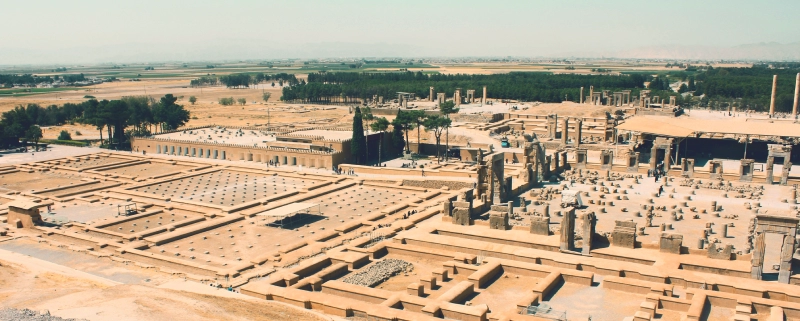
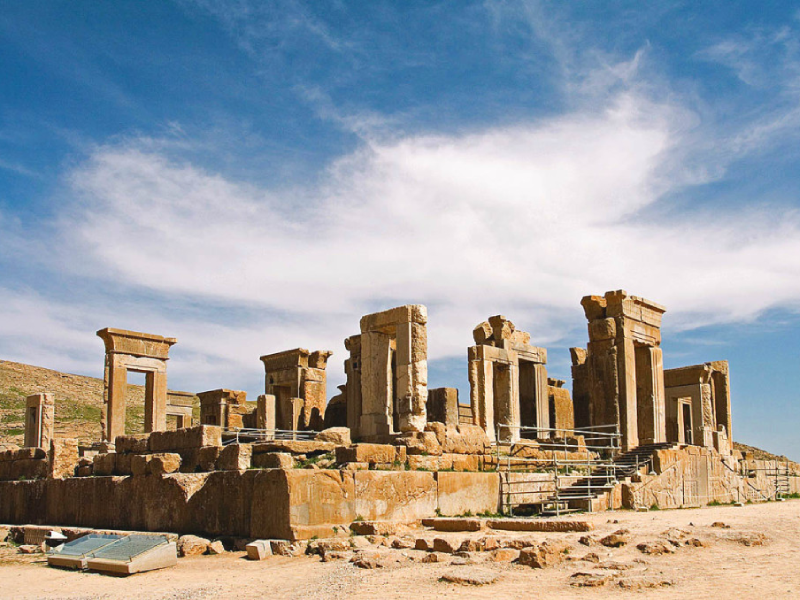
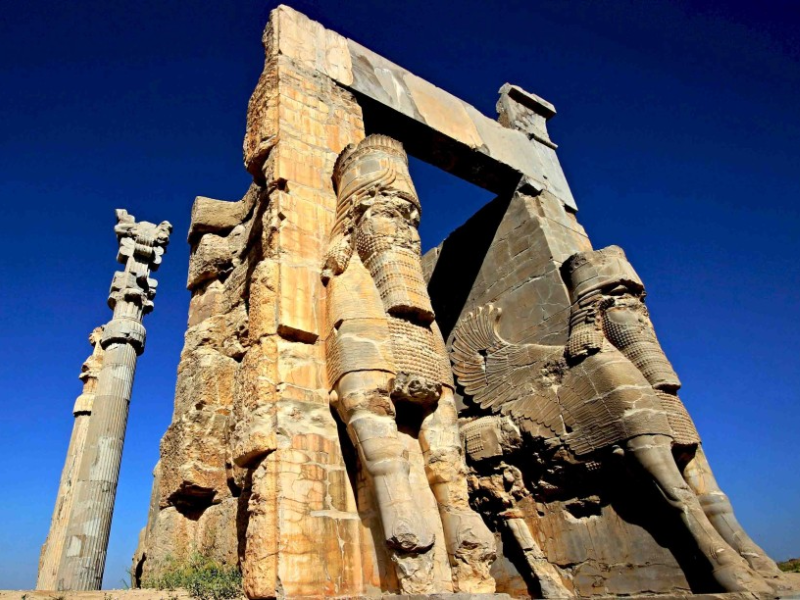
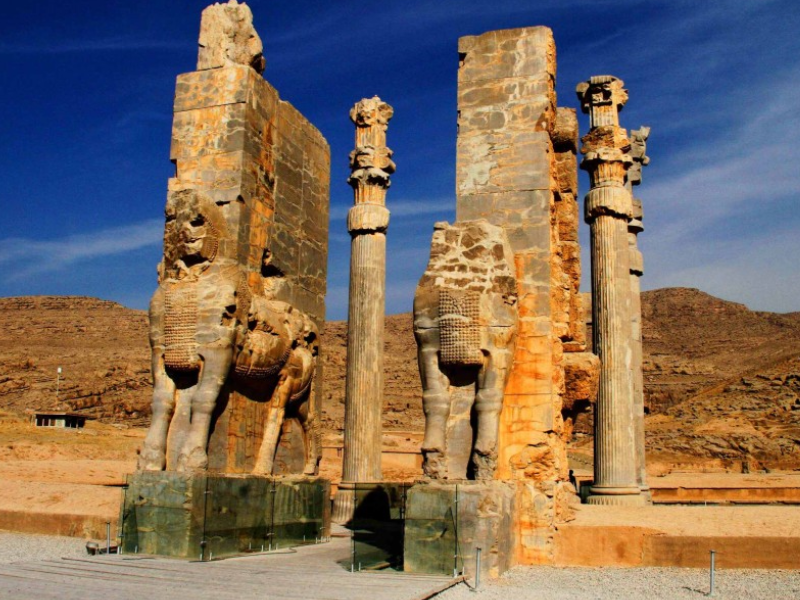
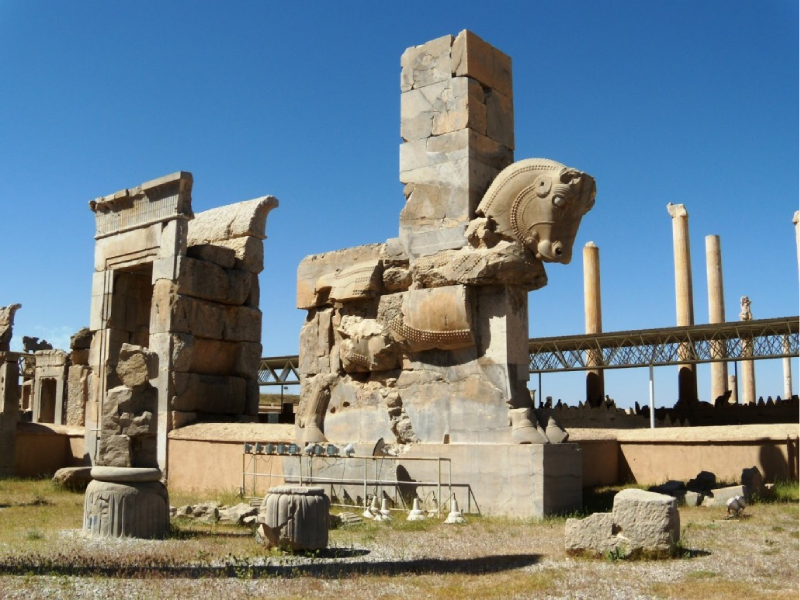
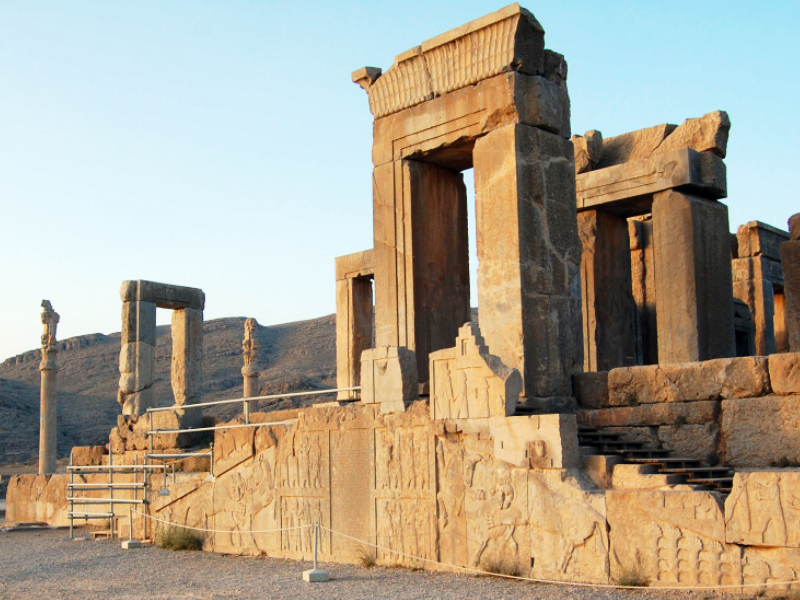
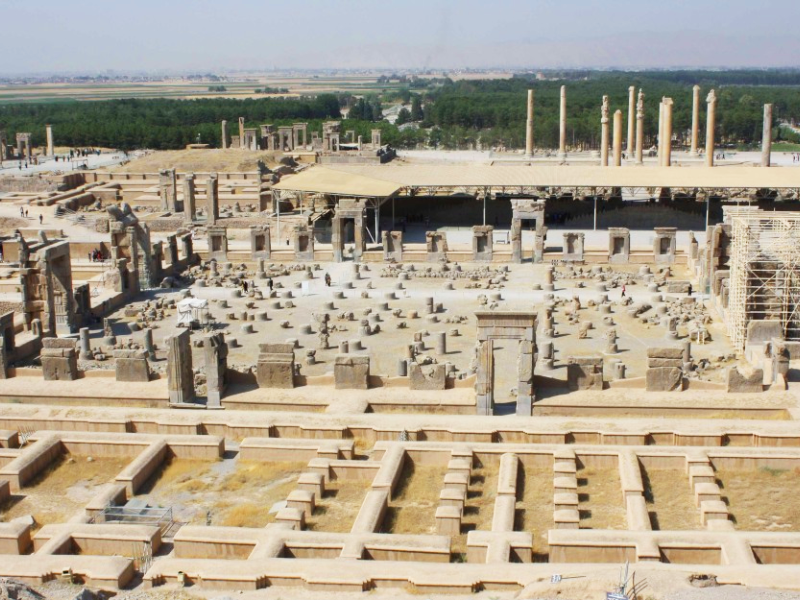

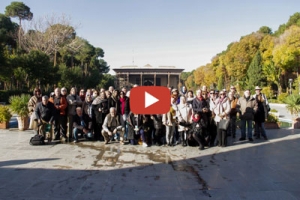


Leave a Reply
Want to join the discussion?Feel free to contribute!